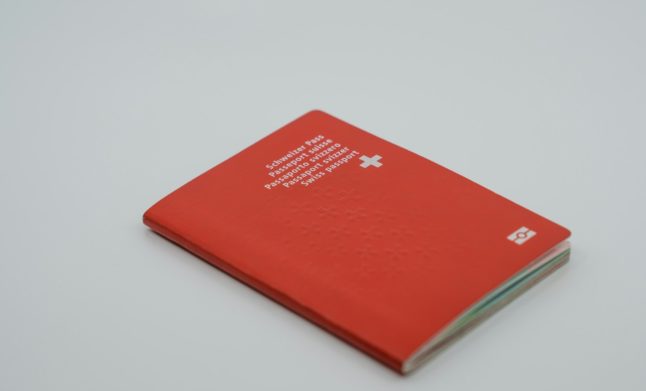The 15-year old radicalised teenager who stabbed a Jewish man in Zurich on Saturday in what police said was an international anti-semitic attack, is a dual Tunisian-Swiss citizen.
He was naturalised, presumably together with his parents, at the age of two, in 2011.
In a video posted online, prior to the attack, he claimed allegiance to the Islamic State (ISIS).
Now Mario Fehr, who is responsible for the Zurich’s security, is calling for the teen’s Swiss citizenship to be revoked.
“There is no place for terrorists in Switzerland,” he said.
Can this actually be done?
As the State Secretariat for Migration (SEM) explains it, “dual nationals can have their Swiss citizenship revoked if their conduct is seriously detrimental to Switzerland’s interests or reputation”.
One example of when such a drastic and irrevocable step can be taken is in the case of people convicted of war crimes, terrorism, or treason (see more about this below).
The fact that the Zurich stabber is a minor should not prevent revocation of his citizenship: according to Fehr, if the teen is convicted, then he can be deported, especially given there is a treaty to this effect between Switzerland and Tunisia.
Have there been any cases of the government stripping a Swiss person of citizenship?
‘Mass’ expatriations took place in this country between 1940 and 1947, when 80 Swiss nationals were deprived of their citizenships because they collaborated with the Nazis.
More recently, in 2019, a Turkish-Swiss dual national lost his Swiss citizenship after being convicted by the Federal Criminal Court for being a member of ISIS.
The last such case, in 2020, involves a woman who was born and raised in Geneva but also has a French passport in addition to a Swiss one. She took her two young daughters to live in the ISIS enclave in Syria without the knowledge of their respective fathers.
In both these cases, authorities revoked their citizenships, banning them from returning to Switzerland and possibly posing a security threat within the country.
According to the Migration Policy Institute, more than 130 countries around the world have such legislation on the books, including 19 EU members.
This basically means that whichever country of citizenship revokes the passport first, the other has no choice but to take in the law breaker.
In the case of a Geneva woman, the Swiss beat the French to the punch.
Are there other reasons for revoking Swiss citizenship?
Yes.
For instance, if you lie during the naturalisation process, provide false information, or conceal important facts, you run the risk that your passport will be revoked — but only if you have a second citizenship as well.
READ ALSO: Can Swiss citizenship be revoked – and can you get it back?



 Please whitelist us to continue reading.
Please whitelist us to continue reading.
Member comments